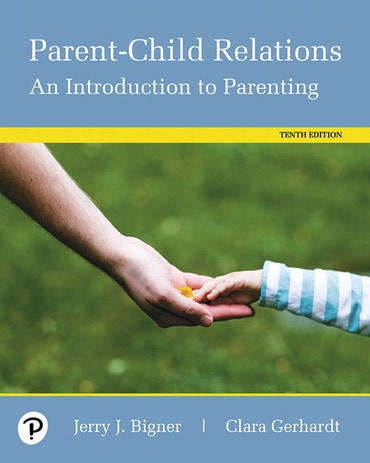Switch content of the page by the Role togglethe content would be changed according to the role
Parent-Child Relations: An Introduction to Parenting, 10th edition
Published by Pearson (February 16, 2018) © 2019
- Jerry J. Bigner Colorado State University, Professor Emeritus
- Clara Gerhardt
eTextbook
per month
$95.99
Need help? Get in touch

Digital Learning NOW
Extend your professional development and meet your students where they are with free weekly Digital Learning NOW webinars. Attend live, watch on-demand, or listen at your leisure to expand your teaching strategies. Earn digital professional development badges for attending a live session.

